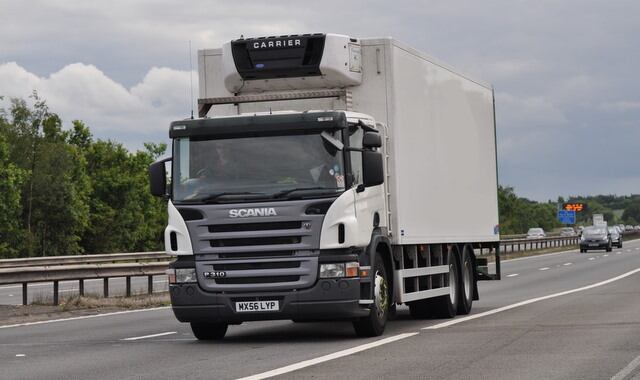The Government announced on 25 and 26 September that up to 5,000 heavy goods vehicle (HGV) drivers and up to 5,500 temporary poultry workers and would be granted temporary visas to travel to and work in the UK up to and including 24 December. The move followed problems distributing petrol to some forecourts, creating additional challenges for food distributors amid panic buying of fuel.
The situation is the latest shock to hit the food industry after 18 months of battling pandemic-related supply issues, Brexit red tape and, most recently, a shortage of particularly meat processing workers and CO2.
Recruitment for additional short-term HGV drivers and poultry workers would begin in October and UK Visas and Immigration (UKVI), working with the Department for Transport and Department for Environment, Food and Rural Affairs (DEFRA), would aim to expedite applications.
"We have listened to concerns from the sector and we are acting to alleviate what is a very tight labour market," environment secretary George Eustice said. "We have already taken a range of steps to support the industry, including streamlining the process for new HGV drivers and increasing the number of driving tests. Our measures provided a rapid increase in capacity and allow for an extra 50,000 tests to take place per year.
"Progress has already been made in testing and hiring, with improving pay, working conditions and diversity. We continue to closely monitor labour supply and work with sector leaders to understand how we can best ease particular pinch points. Through our Plan for Jobs we’re helping people across the UK retrain, build new skills and get back into work."
Food and Drink Federation and British Poultry Council
The Food and Drink Federation’s chief executive, Ian Wright and British Poultry Council chief executive Richard Griffiths welcomed the decision concerning poultry workers. Wright said: "We welcome the government’s pragmatic decision to temporarily add HGV drivers and poultry workers to the existing visa scheme.
"This is something UK food and drink manufacturers have asked for over the last few months - including in industry’s Grant Thornton report - to alleviate some of the pressure labour shortages have placed on the food supply chain."
However, he added: "This is a start but we need the Government to continue to collaborate with industry and seek additional long term solutions."
Griffiths said: "Temporary workers from outside the UK have long been vital to delivering Christmas for our sector and given the unprecedented challenges of the last year they are needed more than ever. British turkey and goose are the centrepiece of Christmas dinners across the country and we are pleased that Government has listened."
Additional measures called for by industry
Industry bodies continue to push for a 12-month COVID Recovery Visa, an extension to the Seasonal Worker Scheme for UK horticulture and an urgent review by the Migration Advisory Committee of the Shortage Occupation Lists to accommodate the acute demand for agricultural workers in sectors like dairy, pigs and poultry, plus wider recruitment gaps in food and drink processing and packaging.
A recent survey of NFU Scotland’s soft fruit and vegetable growers estimated that there was a 20% shortfall in seasonal workers. The union said it was looking for the Seasonal Workers Pilot (SWP) scheme to be replaced with an improved and expanded permanent scheme for farm businesses and seasonal migrant workers.
NFU Scotland’s chief executive Scott Walker said: “The Government now recognises there is an issue that must be addressed. While the focus around labour shortages has been on Christmas goods and fuel, the impact of the labour crisis, affecting both permanent and seasonal staff, is being widely felt among our membership and that needs a meaningful, long-term approach.
“This isn’t just about Christmas, and it isn’t just about making sure there are enough turkeys or fuel to go round. There’s an awful lot more that needs to be done by the UK Government to really solve the labour crisis that we are facing. Short term visas around haulage and poultry processing may provide short term relief to supply issues but long-term solutions are what is needed.
“At farm level, farmers are making business decisions now. If permanent and seasonal staff are not going to be available then they will need to scale back production and restructure accordingly. That will have knock on effects for consumer choice and would be a step backwards for a Scottish food and drink industry committed to growing in value to £30bn by 2030.”
High wages, high skilled economy
The Government stated: "We are moving to a high wage, high skilled economy and the Government is encouraging all sectors, including poultry, to adapt and make employment more attractive to UK domestic workers through offering training, careers options and wage increases and, to help with these efforts and long-term resilience, DEFRA is working with industry and DWP [Department of Work and Pensions] to raise awareness of career opportunities in poultry among UK workers."
In addition to the temporary visa arrangements, the Government said up to 4,000 people would soon be able to take advantage of training courses to become HGV drivers.
The Department for Education is investing up to £10m to create new skills bootcamps to train up to 3,000 more people to become HGV drivers. The free, short, intensive courses will train drivers to be road ready and gain a category C or category C&E licence, helping to tackle the current driver shortage. An additional 1,000 people are expected to be trained through courses accessed locally and funded by the Government’s adult education budget.
Fuel tanker drivers need additional safety qualifications, which the Government said it would work with industry to ensure drivers could access as quickly as possible.
The Department for Transport (DfT) has also agreed to work with Driver and Vehicles Standards Agency (DVSA) to ensure tests would be available for participants who had completed training courses as soon as possible.
More driving examiners
The Ministry of Defence (MOD) also announced the immediate deployment of their Defence Driving Examiners (DDEs) to increase the country’s testing capacity. MOD examiners would work alongside DVSA examiners, providing thousands of extra tests over the next 12 weeks, the Government added.
The DfT, along with leading logistics organisations has worked with the DVLA to send nearly one million letters thanking HGV drivers for their vital role supporting the UK economy, and to encourage those who have left the industry to return. The letter, which will arrive on doormats over the coming days, sets out that the steps the road haulage sector is taking to improve the industry, including increased wages, flexible working and fixed hours.
However, the Government stressed that it wanted to see employers make long term investments in the UK domestic workforce instead of relying on overseas labour to build a high-wage, high-skill economy.
It recognised the temporary visas were not a long term solution, and reform within the industry was vital.
'Builds on work already done'
Transport secretary Grant Shapps said: "This package of measures builds on the important work we have already done to ease this global crisis in the UK, and this Government continues to do everything we can to help the haulage and food industries contend with the HGV driver shortage.
"We are acting now but the industries must also play their part with working conditions continuing to improve and the deserved salary increases continuing to be maintained in order for companies to retain new drivers.
"The government will also provide funding for both medical and HGV licences for any adult who completes an HGV driving qualification accessed through the Adult Education Budget in academic year 2021/22. Previously, adults who took these qualifications had to pay for their own licences. This change will be backdated and applied to anyone who started one of these qualifications on or after 1 August 2021."
Elizabeth de Jong, Logistics UK’s director of policy, described the measures aimed at improving the driver crisis as 'a huge step forward'.




